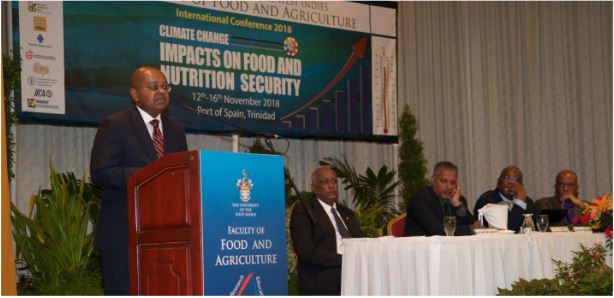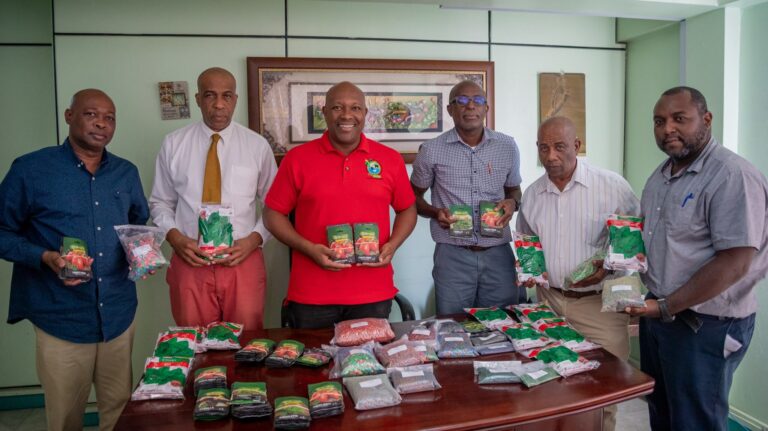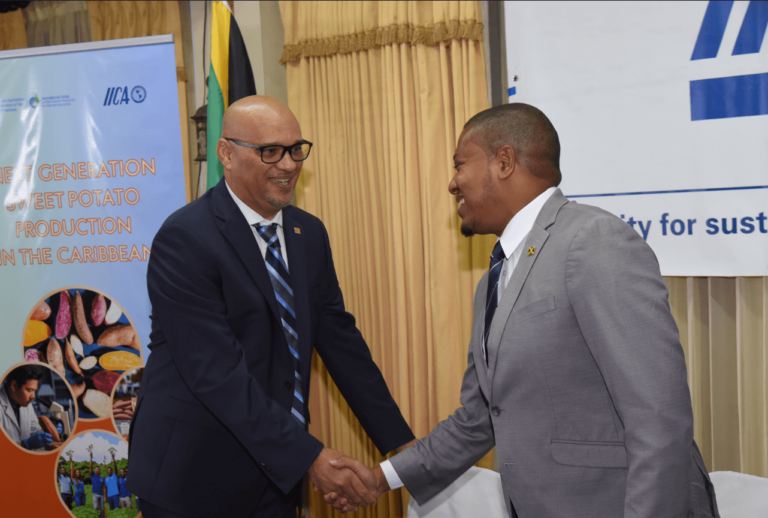A regional conference organized by the University of the West Indies (UWI) enabled IICA, researchers, representatives of the academic sector, progressive trainees, as well as national, regional and international development agencies to share experiences in order to analyze progress achieved and opportunities as well as identify strategies for overcoming challenges, with the aim of guaranteeing food security in one of the regions that is most vulnerable to climate change.

IICA, researchers, representatives of the academic sector, progressive trainees, as
well as national, regional and international development agencies to share experiences
in order to analyze progress achieved and opportunities as well as identify strategies for
overcoming challenges, with the aim of guaranteeing food security in one of the regions
that is most vulnerable to climate change.
San Jose, 28 November 2018 (IICA). The Inter-American Institute for Cooperation on Agriculture (IICA) collaborated with authorities, members of the academic sector and representatives of international cooperation agencies in Trinidad and Tobago and the Caribbean region in order to analyze risks associated with climate change as well as climate change mitigation mechanisms in Caribbean countries.
During a conference on the impact of climate change on food security at the Faculty of Food and Agriculture (FFA) of the University of the West Indies in Trinidad and Tobago, IICA and other agricultural stakeholders underscored the need to prioritize resilience to climate change at all governance and cooperation levels in Caribbean countries.
The entity specializing in agriculture has undertaken efforts to increase resilience to climate change by strengthening the capacity for adaptation as well as by mitigating risks in each of the 34 member countries.
“IICA’s support focuses on preparation, recovery and transition toward resilience,” stated Chaney St. Martin, International Specialist in Water and Soil Management at the IICA Delegation in Trinidad and Tobago.
During the event, James Fletcher, a member of IICA’s Hemispheric Advisory Committee, noted that “resilience to the innumerable effects of climate change should be the number one priority for every Caribbean home, community, sector, country and regional agency.”
The development of the Global Center for Resilient Agriculture in Dominica is a clear example of efforts undertaken in this regard. The center will enable the Institute, along with public and private stakeholders, to identify best practices for mitigating the impact of climate change on this region.
Support from developed countries and the private sector plays a key role in mobilizing new funding sources to address climate-related issues. In this way, countries across the region would no longer be forced to channel their limited financial resources toward addressing issues that they are unable to solve on their own.
“Boosting the agriculture sector’s capacity for recovery requires a significant investment of capital at the government and private levels. Although we focus on addressing critical issues to develop resilience, the greatest challenge that our countries face is meeting capital investment requirements associated with agricultural resilience,” stated Clarence Rambharat, Minister of Agriculture, Land and Fisheries of Trinidad and Tobago.
In this Caribbean country, IICA works hand-in-hand with private companies such as Garden Pool and Matelot Farmers Group to build a resistant rural agricultural community.
IICA’s participation in the UWI-FFA conference afforded yet another opportunity to identify and establish regional and international work groups that could develop climate-resilient sustainable agriculture models that can be adapted to different conditions.
More information:
Chaney St. Martin, International Specialist in Water and Soil Management at the IICA Delegation in Trinidad and Tobago.










